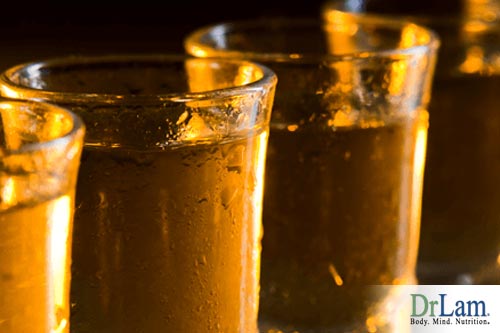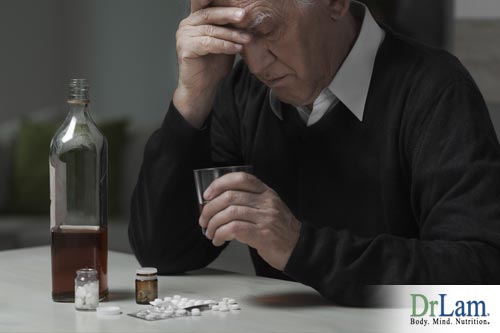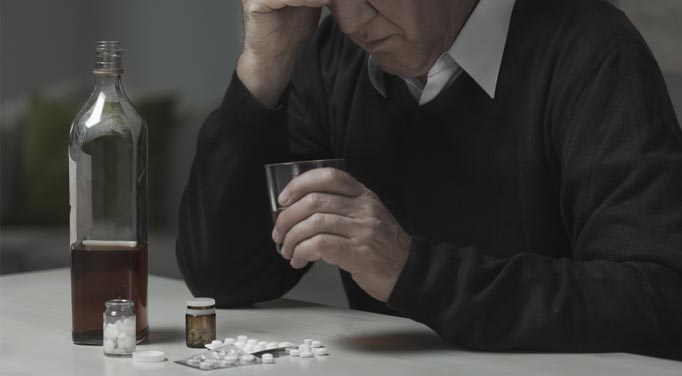 America has more than 78 million baby boomers and they are going into retirement with more than their savings. The baby boomers are also retiring with an alcohol, drug abuse, and mental disorder epidemic that the recent Institute of Medicine report says has yet to be recognized. This generation grew up during a time when drug experimentation was common and regular alcohol use was socially accepted. Drug and alcohol abuse by the elderly is a growing concern in the medical field.
America has more than 78 million baby boomers and they are going into retirement with more than their savings. The baby boomers are also retiring with an alcohol, drug abuse, and mental disorder epidemic that the recent Institute of Medicine report says has yet to be recognized. This generation grew up during a time when drug experimentation was common and regular alcohol use was socially accepted. Drug and alcohol abuse by the elderly is a growing concern in the medical field.
The notion that the elderly are addicted to or abusing alcohol, prescription drugs, or illegal drugs might not seem probable. This notion is hard to imagine especially since it is thought that substance abuse and alcohol addiction are only for the young.
This is completely wrong. Baby boomers, born in the sixties and seventies when drug experimentation was pervasive, are more likely to use illegal drugs than other generations. Currently, the rate of illegal drug use in adults between the age of 50 and 59 is 6.3%. That is a 2.7% raise from 2002. The most abused drugs are alcohol, marijuana, opiates, and cocaine.
Approximately 14% to 20% of the elderly population has one or more mental disorder or substance abuse issue. This number is expected to increase by almost double between the years 2010 and 2030.
It is difficult to detect alcohol and drug problems because physicians and family members are reluctant to ask the elderly about it. It is, perhaps, another form of ageism. However, when a physician sees an older patient, it is not the first thing that comes to mind.
Even when the physician detects an alcohol or drug abuse issue, they may not realize how problematic it can be. As people get older, their ability to metabolize substances is reduced and their brain has an increased sensitivity to them.
Many surveys document a problematic amount of alcohol abuse by the elderly. With the increased brain sensitivity and the harmful effects of alcohol, it is recommended by the National Institute of Alcohol Abuse and Alcoholism that elderly aged 65 or older should not have more than 3 drinks during a 24 hour period or 5 drinks for an occasion during the past month.
The use of prescription drugs, without medical necessity, is rising rapidly. It is estimated that up to 10% of elderly actually misuse prescriptions with the potential to abuse them. These medications include Oxycodone, Klonopin, and Ambien among others.
The use of drugs and alcohol by the elderly is rarely to get high. When the substance abuse begins when the person is over 60 years old, they are usually using the substance to alleviate psychological and physical pain from social isolation, loss of loved ones, psychiatric illnesses or medical conditions.
We are currently facing a looming substance abuse and mental heath crisis in the elderly population. Will we be able to meet the challenge with the proper research and investment in mental health services?
The problem of Baby Boomers abusing substances has many causes. One of the major ones is stress. Stress from multiple origins.
 Baby Boomers are getting to the point in life where they’re seeing more of their friends and relatives die. Loss of significant others is a major stressor in anyone’s life. When aging is a factor in this loss, it becomes more significant. The fact of Baby Boomers’ own mortality plays a part. Seeing friends die brings this to the forefront of people’s minds.
Baby Boomers are getting to the point in life where they’re seeing more of their friends and relatives die. Loss of significant others is a major stressor in anyone’s life. When aging is a factor in this loss, it becomes more significant. The fact of Baby Boomers’ own mortality plays a part. Seeing friends die brings this to the forefront of people’s minds.
In addition, Boomers are finding their bodies wearing out. This becomes an added stressor. No longer are they able to do things they did without thinking not that many years ago. No longer do they bounce back from illness or injury. Now they require medications that can become habit-forming to help them deal with daily physical reminders of aging. Too many times, Boomers become addicted to these medications.
The stresses that come from aging and dealing with substance abuse add to the stresses of daily living and others that appear as people retire. All of this stress leads to our bodies activating the natural response that can lead to more serious symptoms that require treatment. Among the conditions resulting from stress is adrenal fatigue syndrome. This condition comes when the adrenal glands reach exhaustion from responding to stress. They no longer secrete enough cortisol to fight the effects of stress.
Comprehensive treatment of the effects of stress on the body comes from a different way of viewing stress and its effects called the NeuroEndoMetabolic (NEM) model of stress. This viewpoint looks at all systems of the body interacting when under stress. With seniors the results of stress from substances like alcohol affect the inflammation, detox, and metabolism circuits most. Substances tend to increase inflammation, often leading to need for more substances to handle the effects.

